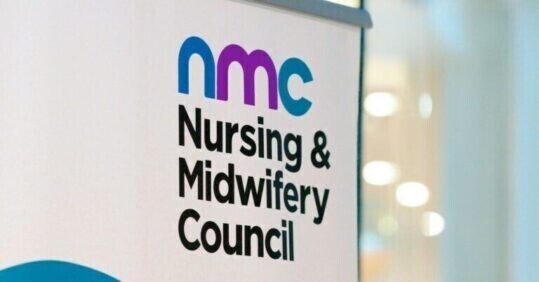‘Inadequate’ general practice nursing workforce data must be addressed

The collection of general practice nursing workforce data in Scotland is ‘inadequate’ and must be improved to ensure appropriate planning and investment for the sector, a new report has urged.
The Royal College of Nursing’s (RCN’s) latest annual workforce report has warned that over the last 12 months the pressures on Scotland’s health and care system and its ongoing nursing workforce crisis ‘have shown little sign of improvement’.
It sets out the latest trends, vacancies and challenges across different settings, including in general practice, community, social care and in the NHS.
And it suggests several recommendations for the Scottish Government and NHS boards to take on board to help the nursing profession ‘grow, develop and maximise its contribution to the health and wellbeing of the nation’.
General practice nursing workforce
According to the report, ‘one in 10’ GP practices reported nurse vacancies in 2024.
Using data from Public Health Scotland and NHS Education for Scotland, RCN analysis suggested an estimated 1,710.3 full-time equivalent (FTE) nurses were working in general practice in 2024 – a 0.5% increase in FTE and a 0.4% increase in headcount compared to 2023.
Related Article: Only 25% of practice nurses have heard from employer about 2025/26 pay rise
But the number of nursing support workers in general practice have decreased by 1.1% in headcount and 3.7% in FTE in the same period.
Overall, the FTE general practice workforce – combing both registered nurses and nursing support workers – has fallen by 5.3% (112 FTE staff) since 2019.
Though the RCN noted this was ‘driven’ by a decline in nursing support workers – which have fallen by a third (32.3%) in general practices since 2019.
For registered nurses, this workforce in general practice has increased marginally over this time – up 1.2% (20.3 FTE staff).
However, the RCN noted that the headcount of registered nurses had fallen by 0.7% (18 staff) since 2019, ‘suggesting changes in working hours’.
GPN data ‘inadequate’
Despite this analysis, the RCN warned that published figures for the general practice nursing workforce ‘are not complete’.
It suggested this was because of ‘partial returns’ from practices when completing the annual General Practice Workforce Survey.
Estimated figures, used by NHS Education Scotland, are therefore based on ‘weighting the data in the survey by NHS board practice list sizes’, the RCN report said.
‘General practice nursing in primary care is an area where data continues to be inadequate and in need of development,’ the report added.
Related Article: FtP screening caseload at lowest level in five years, says NMC
The RCN said that Audit Scotland – a government agency – had also ‘acknowledged this as an area requiring attention if the Scottish Government is to make informed decisions on general practice planning and investment’.
In its list of recommendations for ministers and the NHS, the report called for investment into ‘growing the essential role’ of registered nurses working outside hospital settings, including in general practice, to ‘reduce health inequalities and realise the ambition of shifting the balance of care’.
In addition, it stressed that workforce planning across all settings ‘must be based on timely and accurate data’.
‘The continued gaps in data collection across social care, general practice and NHS services must be addressed,’ the RCN urged.
Other recommendations cover areas such as:
- Ensuring fair pay and good employment terms and conditions for nursing staff wherever they work
- The introduction of safety-critical nurse-to-patient ratios in all care settings
- Increasing the student nurse bursary in line with living costs
Colin Poolman, director of RCN Scotland, said: ‘Delivering and supporting a sustainable nursing workforce will be key to delivering improvements and shifting the balance of care.
Related Article: Government and TikTok campaign to target overseas cosmetic surgery
‘Our report demonstrates the challenges that need to be overcome. Our recommendations reflect the need for the Scottish Government to follow through on its existing commitments and to take the action to allow the nursing profession to grow, develop and maximise its contribution to the health and wellbeing of the nation.’
Earlier this year, a special Nursing in Practice article series explored the current issues facing the general practice nursing workforce, including recruitment, retention, training and the impact of the Additional Roles Reimbursement Scheme in England.
The Scottish Government has been contacted for comment.

See how our symptom tool can help you make better sense of patient presentations
Click here to search a symptom





![Menopause: identification and management [NG23]](https://s3-eu-west-2.amazonaws.com/images.nursinginpractice.com/wp-media-folder-nursing-in-practice/wp-content/uploads/2025/03/PULSE-NIP-UPLOAD-BAYER-NICE-MENOPAUSE-A5-HANDBOOK.jpg)
